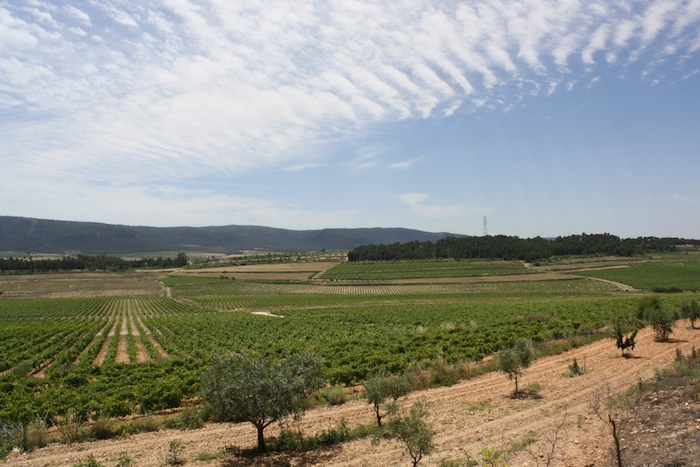Think wine and Spain, and you probably think of Rioja.
I’ve been drinking Rioja for years, but a recent trip to the wine region of Valencia has shifted my gears. The bonus: Unlike the better-known but landlocked region of Rioja, Valencia is smack dab on the Mediterranean Sea, with beautiful beaches and rolling hills and countryside inland so that some refer to it as the Tuscany of Spain.
Indeed, on my whirlwind three-day trip, we hit eleven wineries in Valencia and the subregion of Utiel-Requena, and met winemakers and tasted wines that pair well with the national dish of Spain, paella, or are fine to drink on their own. Here are a few:
At Bodega Aranleon, the first organic winery in the region, wine is made in a winery that dates back to 1927. We then headed to Bodegas Dagon, Â where winemaker Miguel Marquez makes his Bordeaux-style wines by harvesting the grapes according to lunar cycles. He must be doing something right: one of his wines sells at the Ritz in London for 240 pounds sterling.
At the other end of the spectrum, Vinos de la Vina is one of the largest wine and olive oil facilities in the region; they produce over a million kilos of olive oil each year and up to 15 million bottles of wine.
Utiel-Requena produces more grape varieties compared to Rioja because its harvest season is longer; compared to Rioja’s average of 15 days, the harvest in the Mediterranean region lasts almost three months, from the end of August through mid-October, due to its more drastic swings in climate: warm and temperate near the coast, with hot dry days and cool nights further inland.
Which results in a greater variety of grapes for winemakers to play with, a kind of experimentation that’s difficult in a more established region like Rioja. Bobal, Monastrell, and Macabeo are common varieties here. In fact, Valencia and Utiel-Requena reminded me of the Paso Robles appellation of California: it’s in the shadow of a more well-known winemaking style and established wine tourism route, has a climactic system that swings far and wide, and the winemakers skew younger and are therefore more experimental in their approach to winemaking.
Hint: though you may revel in the earthiness of a Valencian Tempranillo sitting seaside in Florida, Mexico, or the Caribbean, know that almost universally that winemakers keep the best wines to themselves, or at least in their own countries. Which always warrants a trip to any international wine region so you can taste the difference. The wines of Valencia and Utiel-Requena are no exception.




